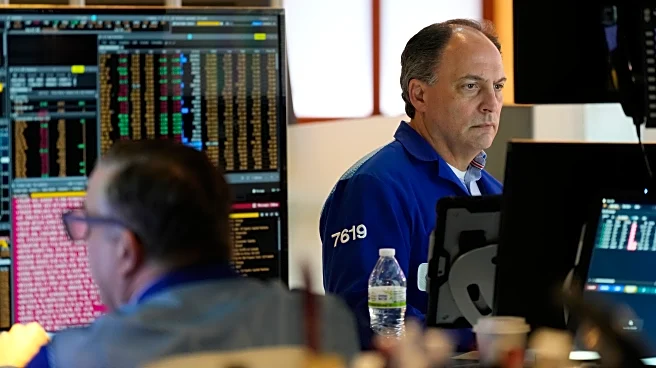
Having been a Sunderland fan for almost as long as my fellow writer Kelvin Beattie, which, believe me, is a very long time, I have experienced a series of different owners at our club. Football itself
has changed a lot over the past decades, as have the news media, and although I have no insider Wearside boardroom knowledge, some of the major stakeholders in our club have left a lasting impression on me, as well as on many other fans.
What really gets most supporters angry is when an individual or group take over our beloved football club, do little in terms of improving on-field performances, facilities for fans, or the standing of the team, but somehow make money when they eventually sell on their shares. There is definitely a business side to running a football team, but I would argue that the club is nothing without the fans, so a league club is not purely a commercial or financial asset. Ask supporters of Bury FC, twice winners of the FA Cup, what it means when your team is forced to leave the EFL involuntarily, which happened when The Shakers were ejected from League Two in August 2019 and now find themselves in the ninth tier of English football. Talk to fans of Leicester, Hull City, or Sheffield Wednesday in the league we just got out of, and they are not optimistic about the coming season, and realistically worried about forced relegation from the Championship.
The first Sunderland owner I was really aware of was the transport businessman Tom Cowie, the founder of a company which later became Arriva. I knew his name because he married a Norwegian lady who was a friend of our family, and I met his mother a few times. From 1980 to 1986, Cowie was Chairman of Sunderland AFC, but the Wikipedia entry notes that “his tenure remains, in the eyes of most supporters, a real low in the club’s history. His appointment of Lawrie McMenemy as manager in 1985 culminated in their relegation to the Football League Third Division”.
/cdn.vox-cdn.com/uploads/chorus_asset/file/26066506/article_2089127_0002DE0F000001F4_68_306x423.jpg)
We sometimes naively expect financially successful businesspeople to be nice, caring individuals who try to run ethical companies; the sort of person you would choose to have round for dinner or enjoy a beer with. Unfortunately, many wealthy and influential people are greedy, driven and sociopathic, with a tendency to take revenge on those who have crossed them, making enemies easily. Such individuals can be ruthless and calculating, being purely driven by money, fame and power, so can be tempted to get involved in sport to improve their public image. Do we really want such people in charge of our football? Probably not.
Sunderland started the Eighties well with promotion to the top league. The manager Alan Durban’s time under Cowie was spent in or around the First Division relegation scrap, but he was sacked by Cowie in March 1984 after a run of three defeats. I heard at the time that was for signing too many defensive midfielders, with Mark Proctor being the final straw. David Snowden’s book “Give Us Tomorrow Now” documented that time in Sunderland’s history excellently; the clear impression is given that Cowie was an awkward character to deal with and was very careful with his money. Len Ashurst took over, but we were relegated in 1985, so overall, a period of decline… Cowie scored two points out of five, in my opinion.
Bob Murray replaced Cowie as chairman in 1986. He appointed Denis Smith as manager at our then historic low point, leading us out of League Division Three back into the second tier in 1988. That was one of Murray’s good decisions, along with two others which, looking back, were highly visionary: appointing and backing the legendary Peter Reid as manager in 1995, then relocating the club to the Stadium of Light in 1997.
/cdn.vox-cdn.com/uploads/chorus_asset/file/26066507/829212130.jpg) Photo by PA Images via Getty Images
Photo by PA Images via Getty ImagesMurray’s time as chairman is seen as a high point for many Sunderland fans, once we had won the Nationwide Football League Division One under the legendary Reid in 1999 with a then-record 105 points, scoring 91 goals during Niall Quinn and Kevin Phillips’ telepathic strike partnership. That stunning promotion season was followed by a couple of great Premier League campaigns with top-seven finishes, and I felt at the time that we would really establish ourselves as a top football club again. With further investment, a different leadership structure at the club, bringing in more financial backing and improved succession planning, it could all have been very different. In 2002 we ended the season on 40 points, Reid was dismissed the following October, and Murray made the awful decision to bring Howard Wilkinson in as manager, and we ended the season on 19 points. There were some up-and-down seasons up to 2006… so I would assess Murray’s time as chairman as three-and-a-half out of five.
Niall Quinn, a true Wearside hero who cares deeply about our football club, led the Irish Drumaville Consortium bid, and on 3rd July 2006 an offer of £10 million for Murray’s shares was accepted, with Quinn having the unusual dual role of club Chairman and Acting Manager. Murray, as outgoing chairman, did not want to be seen as making money from his shares, which brought him a lot of credit after serving his hometown club so well.
Quinn promised to hand over the reins to a world-class manager, so after a terrible start to the 2006–07 season involving five consecutive defeats, Roy Keane took on the manager role, leading us to the Coca-Cola Championship title in his first season. He did a creditable job of establishing us back in the Premier League, finishing 15th in 2008; I score four out of five for Drumaville.
/cdn.vox-cdn.com/uploads/chorus_asset/file/26066508/87950055.jpg) Photo credit should read GRAHAM STUART/AFP via Getty Images
Photo credit should read GRAHAM STUART/AFP via Getty ImagesIrish-American businessman Ellis Short gained a controlling interest in Sunderland in September 2008, completing a deal with the Irish consortium for their shares in the club. Soon after the ownership change, Roy Keane left the club, underlining how important Niall Quinn was as a mentor and support for the talented but outspoken former Manchester United captain. Quinn stayed on as chairman until October 2011, when Short took on that role, taking on full ownership of the club.
Being employed in the US for much of Short’s tenure at Sunderland, I was not happy with his “hire-and-fire” attitudes and hold the opinion that he saw our club mainly as a financial asset. There were many striking and puzzling features during the decade of Short’s ownership, but for me it was that turnover of managers that stands out, correspondingly reflected in short-term, often flawed player recruitment. Some very decent managers such as Martin O’Neill, Steve Bruce and Gus Poyet were fired relatively quickly in the face of huge expectations; we had a major turnover of players, with very few sold at a profit. Short was generally absent, and the high-level people left in charge of running the club made a series of rash decisions and errors.
The US has a totally different work culture to Europe. There is very little security of employment, and the freedom for bosses to dismiss almost anyone at will at any time is embedded deeply in American society, as we have seen recently with DOGE, Trump and Elon Musk. Short would hire promising Sunderland managers, make funds available, but then would ostensibly offer little support and leave them isolated, expecting the incumbents to work miracles. Short-term fixes ruled at the Stadium of Light for ten years, and the financial plug had been firmly pulled once David Moyes was appointed manager in the summer of 2016. The club was in freefall in terms of league standings, but we need at least to be grateful to Short for taking a major monetary hit when selling his shares on to Stewart Donald and Juan Sartori, with Charlie Methven as a minority shareholder in April 2018. Because of the constant musical chairs at Sunderland, I would score Short’s period in ownership as three out of five.
/cdn.vox-cdn.com/uploads/chorus_asset/file/26066520/1062759746.jpg) Photo by Ian Horrocks/Sunderland AFC via Getty Images
Photo by Ian Horrocks/Sunderland AFC via Getty ImagesWe should all be grateful to Stewart Donald for stepping in and helping to save the club at a time when debts were enormous, and I am sure that there were some tricky negotiations with Short. Sunderland AFC could easily have entered administration, which would have meant a points deduction. The two years of remaining EPL parachute payments were obviously an attraction, and the hope was clearly to get back into the Championship as soon as possible. As it was, we spent four long years in League One, which represented a new low for the club, and COVID-19 did not help our situation. Expenses had to be trimmed and a whole series of players on expensive contracts departed the club, which seemed like asset-stripping. There was also a turnover of managers/head coaches: Jack Ross and Phil Parkinson held the role before Lee Johnson took on the job in November 2020. But Donald managed somehow to bring the club closer to its huge fanbase, partly through the Netflix documentary series. He also managed to attract investment from Kyril Louis-Dreyfus, who took on a minority stake in Sunderland in February 2021. Overall, I give Donald two-and-a-half out of five, mainly because of that extended period in the third tier.
In June 2022, soon after Sunderland’s promotion back to the Championship under head coach Alex Neil, Louis-Dreyfus increased his shareholding in Sunderland from 41% to 51%, buying out Methven’s stake and reducing Donald’s percentage from 34% to 19%, thereby becoming the majority shareholder. Juan Sartori then picked up the remainder of Donald’s shares, and in June 2023, another transaction meant that the proportion ascribed to our young French chairman was 64%, and 36% to the Uruguayan.
Bringing all this to the present day, I am very impressed by KLD, our chairman for the past four-and-a-half years, who just led us successfully back into the Premier League after an eight-year absence. As an owner, he has clearly been on a learning curve, given his age when he took over; he is just 27 today but exhibits many important leadership qualities. KLD makes plans, then executes them efficiently. He has hired capable people such as our new Director of Football, Florent Ghisolfi, works well with Kristjaan Speakman, and is present in the North East, attending most games. He has listened to others in the leadership team, so we have a strong structure with outstanding scouting and recruitment strategies in place. He does not appear to seek publicity or personal glory, but his family has the financial muscle to guarantee that loans are repaid, and other payments are made on time, which lends great stability to our football club.
One cannot run a club the size of Sunderland without making some mistakes, and looking back, hiring Michael Beale was one of them. But by being patient last season, KLD strategically brought in the relatively unknown Régis Le Bris as head coach a year ago: this was, in retrospect, a masterstroke. It paved the way for our promotion season, and we have seen “The Model” in action; since receiving large transfer fees for Ross Stewart, Jack Clarke, Tommy Watson and Jobe Bellingham, the recruitment does seem to have been outstanding. In previous seasons, when we sold a high-value player, there has been a vacuum that was not readily filled. These days, we as fans can rest assured that the club already has a planned replacement in their sights. So, already a series of exciting new signings including: Le Fée, Diarra, Sadiki, Adingra, Talbi and Reinildo have been made relatively early in this window, giving the incoming players an opportunity to gel with the rest of the team.
Nobody can guarantee that Sunderland will prosper back in the Premier League this coming season, but we will definitely have a good go at launching a footballing campaign that aims to establish ourselves at the top level. I score KLD as five out of five.
More from rokerreport.sbnation.com:
- Roundup: Sunderland 'Stranded' In Southampton; Moyes Bemoans Bad Luck & Watmore Claims Unity
- As Yet Another Defeat Blends In With All The Others, Questions About Our Future Still Remain
- The Relegations: #2 - 1969-70
- BCA: The Magnificent Twenty Seven
- Fan Focus: The Ugly Inside Talk Saints v SAFC
- Is Ellis Ready To Embrace The Drop?
- PLP: Can Chelsea Or Liverpool Win The League?











